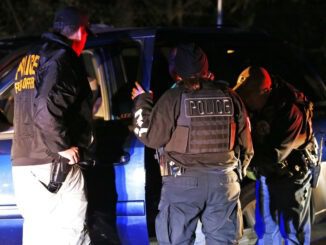
RALEIGH — A federal judge’s order is allowing certain parts of a lawsuit over concealed carry permits filed last December against Mecklenburg County Sheriff Gary McFadden to proceed.
United State District Judge Max O. Cogburn’s July 31 order has three parts, some of which were favorable to the plaintiffs in the case which include Bruce Kane, Sara Beth Williams, Jason Yepko, Grass Roots North Carolina (GRNC), Gun Owners Foundation, Gun Owners of America and Rights Watch International.
“While we still believe that the wide and easily abused discretion given to sheriffs in conducting mental health checks for concealed handgun permits is unconstitutional on its face,” GRNC President Paul Valone told North State Journal in an emailed statement, “we appreciate that the judge is willing to consider an as-applied challenge to address the abuses, delays, and obstructionism in permit issuance from Mecklenburg County Sheriff Garry McFadden which are continuing to this day. GRNC is very much looking forward to a robust discovery process.”
In their lawsuit, the plaintiffs claimed McFadden was abusing a loophole related to mental health checks for concealed handgun permits. The lawsuit asserts sheriffs in the state’s other 99 counties have been able to issue or deny all Concealed Handgun Permit (CHP) applications within the statutory 45-day window, yet McFadden was dragging out concealed carry application processing for more than a year.
“Despite a consent order requiring him to obey North Carolina law, Sheriff Garry McFadden appears to be deliberately delaying and obstructing concealed handgun permit applications by flooding the Veterans Administration with records requests, even for applicants who never served in the military,” GRNC President Paul Valone told North State Journal in December 2022.
Cogburn’s order allows the Second Amendment claims in the lawsuit to proceed but denied the request for a preliminary injunction against the Mecklenburg sheriff, calling the request “moot.” He also dismissed the plaintiff’s due process and equal protection claims.
In his order, the judge granted the defendant’s motion to toss the facial constitutional challenge related to state mental health statutes. A facial challenge is one in which a government law, rule, regulation or policy is considered unconstitutional as written.
“Here, the North Carolina mental health statutes simply require every Sheriff’s Office to determine whether someone is mentally ill and thus cannot safely handle a handgun, a proposition which the Supreme Court has repeatedly recognized is consistent with this country’s historical tradition,” Cogburn wrote. “Moreover, the statutes’ plain language, on its own, does not create unreasonable waiting times for obtaining permits. For these reasons, the Court finds that the challenged North Carolina mental health statutes do not, on their face, violate the Second Amendment, or any other federal Constitutional provision.”
Coburn’s order also states, “The Court will allow discovery to proceed and will reserve a ruling on the as-applied challenge until after the parties have engaged in discovery.”



